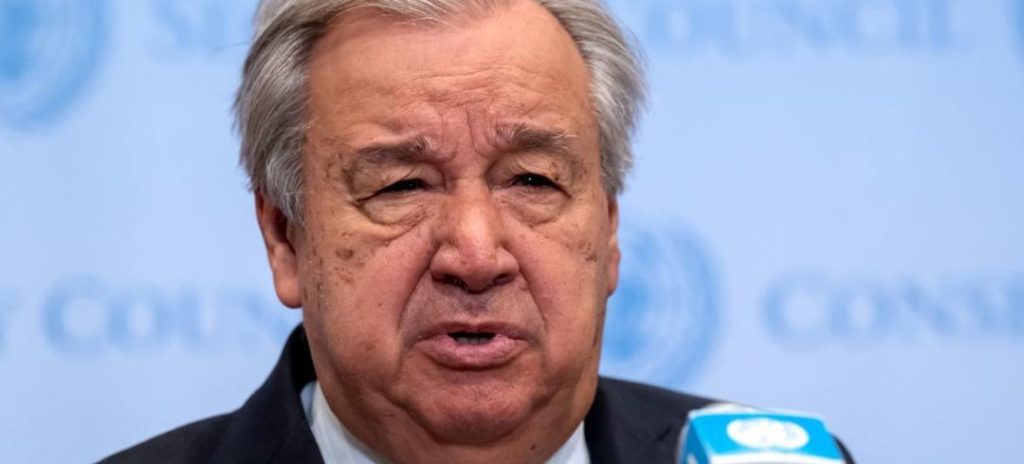
World Can’t Afford a Military Confrontation between India and Pakistan: UN on Operation Sindoor
The world is holding its breath as tensions between India and Pakistan escalate following the Pahalgam terror attack that left several innocent lives lost. In response to the attack, India launched Operation Sindoor, targeting terror infrastructure in Pakistan and Pakistan-occupied Kashmir. While India’s military action is aimed at countering terrorism and protecting its citizens, the international community is urging restraint from both sides to avoid a full-blown conflict.
According to a recent statement by UN Secretary-General António Guterres, the world cannot afford a military confrontation between India and Pakistan. “The world cannot afford a military confrontation between India and Pakistan,” he said. This warning comes as a stark reminder of the devastating consequences that such a conflict could have on the global community.
India’s Operation Sindoor, which was launched on May 15, targeted nine sites in Pakistan and Pakistan-occupied Kashmir, including terrorist training camps, arms depots, and communication centers. The operation is seen as a significant escalation of India’s military response to terrorism, which has been a major sticking point in the bilateral relations between the two countries for decades.
The Pahalgam terror attack, which was carried out by a group of heavily armed terrorists, left several people dead and many more injured. The attack was widely condemned by the international community, with many countries expressing their condolences to the families of the victims and their governments.
Pakistan, on the other hand, has been quick to deny any involvement in the attack, and has instead accused India of using the incident as a pretext to escalate tensions. The Pakistani military has also been put on high alert, with troops deployed along the Line of Control (LoC) that separates the two countries.
The situation is precarious, to say the least. Both India and Pakistan have a long history of military conflicts, and the risks of a full-blown conflict are very real. The last time the two countries went to war was in 1971, and the consequences of that conflict were devastating. The world cannot afford to go through that again.
The UN Secretary-General’s warning comes at a time when the international community is already grappling with several pressing issues, including climate change, poverty, and inequality. A military confrontation between India and Pakistan would only serve to exacerbate these problems, and would likely have far-reaching consequences for global peace and security.
In recent years, the situation between India and Pakistan has become increasingly volatile. The two countries have been engaged in a war of words, with both sides trading barbs and accusations. The situation was further complicated by the withdrawal of the Indian army from the Siachen Glacier, which was seen as a major strategic gain for Pakistan.
The Siachen Glacier is a disputed territory that is claimed by both India and Pakistan. The Indian army has been stationed in the region since 1984, when it launched Operation Meghdoot to capture the glacier. The operation was successful, and the Indian army has been stationed in the region ever since.
The withdrawal of the Indian army from the Siachen Glacier was seen as a major strategic gain for Pakistan, and was widely welcomed by the Pakistani military and political leadership. However, the move was seen as a major setback for India, and has been widely criticized by the Indian media and political establishment.
In the wake of the Pahalgam terror attack, India launched a series of airstrikes against terrorist targets in Pakistan. The airstrikes were seen as a major escalation of India’s military response to terrorism, and were widely welcomed by the Indian public.
Pakistan, on the other hand, has been quick to deny any involvement in the attack, and has instead accused India of using the incident as a pretext to escalate tensions. The Pakistani military has also been put on high alert, with troops deployed along the LoC that separates the two countries.
The situation is precarious, to say the least. Both India and Pakistan have a long history of military conflicts, and the risks of a full-blown conflict are very real. The last time the two countries went to war was in 1971, and the consequences of that conflict were devastating. The world cannot afford to go through that again.
In conclusion, the world can’t afford a military confrontation between India and Pakistan. The consequences of such a conflict would be devastating, and would likely have far-reaching consequences for global peace and security. As the UN Secretary-General has warned, the world cannot afford a military confrontation between India and Pakistan. It is imperative that both sides exercise restraint and engage in dialogue to resolve their differences peacefully.
Source:






